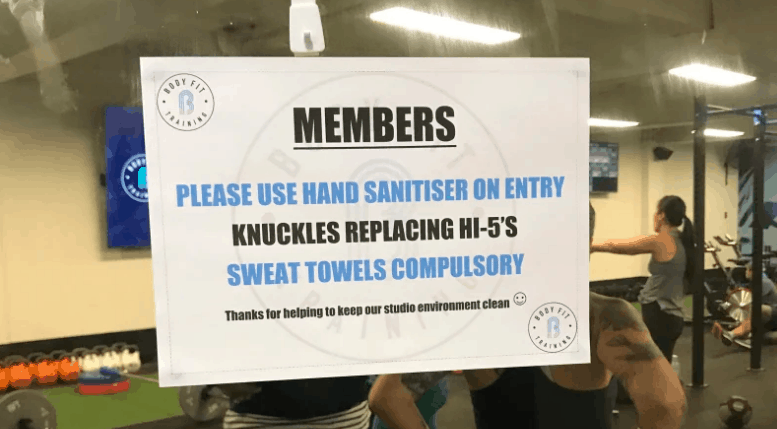
Hospitals are one of the most challenging places to maintain a healthy environment. Many people walk in and out, carrying different microbes on their bodies. It is essential to keep these potentially harmful bacteria from spreading faster.
The following tips will help keep the hospital clean and prevent infection rates from climbing too high.
1. Use Sole Sanitizers
Sole Sanitizers are a great way to help prevent the spread of infection in your hospital. For example, the UVC shoe sanitizer at HealtyhSole.com kills 100% of bacteria and viruses. It is easy to use in all types of footwear, including shoes, sandals, and slippers. It will help keep your staff and patients free from germs by ensuring they are following all safety precautions to prevent the spread of infection.
2. Provide Infection Control Education
It is crucial to educate hospital staff about preventing the spread of infection. They should know how to wash their hands and use a face mask properly. They should also know which surfaces are most likely to harbor bacteria and viruses. Staff can also help by being vigilant about reporting any signs or symptoms of an infection. Early diagnosis and treatment are crucial in preventing the spread of disease.
3. Use Gloves
Gloves can help prevent the spread of infection by protecting you from harmful microbes on the skin’s surface and inside body fluids, such as blood or saliva. It would help if you also used clean gloveless hands for specific tasks, like moving equipment in and out of rooms, so bacteria do not get transferred between surfaces. Wearing masks is also encouraged, especially ones from dmbsupply.com which are better and reducing spread.
4. Cover Up Cuts And Scrapes
If you have a cut or scrape on your skin, cover it up with a bandage to protect it from bacteria and viruses. Even minor scratches can provide an entry point for infection if they are not properly protected.
5. Keep Patient Rooms Clean
Ensure that patient rooms are kept clean and free of clutter. This will help reduce the number of places where bacteria can grow. Wipe down surfaces regularly and mop the floor at least once a day.
6. Provide Clean Linens And Towels
Clean linens and towels are important for preventing the spread of infection because they will help ensure that patients are not exposed to bacteria or viruses through their bedding. It would be best if you had clean sheets, blankets, pillowcases, washcloths, and hand towels available at all times.
7. Ensure The Staff Is Well Rested And Healthy
There is a reason why it’s called the “healthcare” industry. Providing your staff with access to healthcare benefits, including paid sick leave and health insurance, will help them stay healthy and provide quality care for patients at all times. Educate employees on the health risks of working while sick. And don’t be afraid to speak up about their well-being. The more you can keep your employees healthy, the less likely they will spread bacteria or viruses among patients.
8. Avoid Close Contact with People Who are Sick
It is important to avoid close contact with sick people, especially if you do not have immunity against their illness. It includes avoiding shaking hands, hugging, or kissing someone on the mouth. If you must contact a sick person, be sure to wash your hands immediately afterward.
Close contact with sick people is the most common way for hospital visitors to pick up an illness. Even if you do not feel ill, it is vital to be extra vigilant about following all safety precautions to avoid unintentionally spreading infections throughout your healthcare facility.
9. Ensure Everyone is Vaccinated
The best way to prevent hospital-acquired infections is by getting vaccinated against common illnesses like the covid-19, flu, pneumonia, and whooping cough (pertussis). Vaccines help prepare your body’s immune system so that it can fight off infection when you come in contact with harmful microbes. Be sure to also keep up on all recommended vaccines throughout life.
10. Identify Contagions
Hospital staff needs to identify potential contagions and take the necessary steps to prevent them from spreading. Some of the most common contagions in hospitals include covid-19, flu, pneumonia, and MRSA (methicillin-resistant Staphylococcus aureus).
If you feel ill, it is best to stay home until you are no longer contagious. It will help prevent the spread of infection to other people. If you must contact other people while you are sick, be sure to wear a face mask and follow all safety precautions.
11. Prevent Patients From Walking Barefoot
Another vital way to prevent the spread of infection is to keep patients from walking barefoot. This will help stop germs that are on floors and other surfaces in your facility from getting into vulnerable patients’ bodies through cuts or sores they may have on their feet. Use mats outside rooms where there are sick people so you do not track contaminated dirt inside or place shoes at entrances for visitors who must take off theirs before entering.
12. Use Germ-Killing Cleaning Products
Use disinfectants throughout the hospital to reduce exposure to potentially harmful microbes. Look out for signs that indicate when cleaning or disinfecting could use more thorough attention, such as unclean toilets with visible residue buildup, dirty floors around trash cans, overflowing wastebaskets with food scraps inside them a breeding ground for microorganisms, and empty soap dispensers at hand-washing stations. By addressing these areas promptly and utilizing the resources of Viking Rental, you ensure a high standard of cleanliness for the well-being of all.
13. Encourage Frequent Hand-Washing
Hand sanitizers are also an excellent way to kill germs on the go. It is probably the most important thing you can do to prevent the spread of bacteria and viruses. Wash hands thoroughly with soap and water, or use an alcohol-based hand sanitizer if soap and water are unavailable. Be sure to scrub your hands for at least 20 seconds, ensuring to get in between your fingers and under your nails.
There are many ways to help prevent the spread of infection in the hospital. Following all safety precautions to avoid unintentionally spreading infections throughout your healthcare facility is one of the most important things you can do. Be sure to get vaccinated, avoid touching your eyes, nose, and mouth, and identify potential contagions so you can take the necessary steps to prevent them from spreading. Additionally, using sole sanitizers is a great way to help keep your hospital safe and free of infection.


















Follow Us